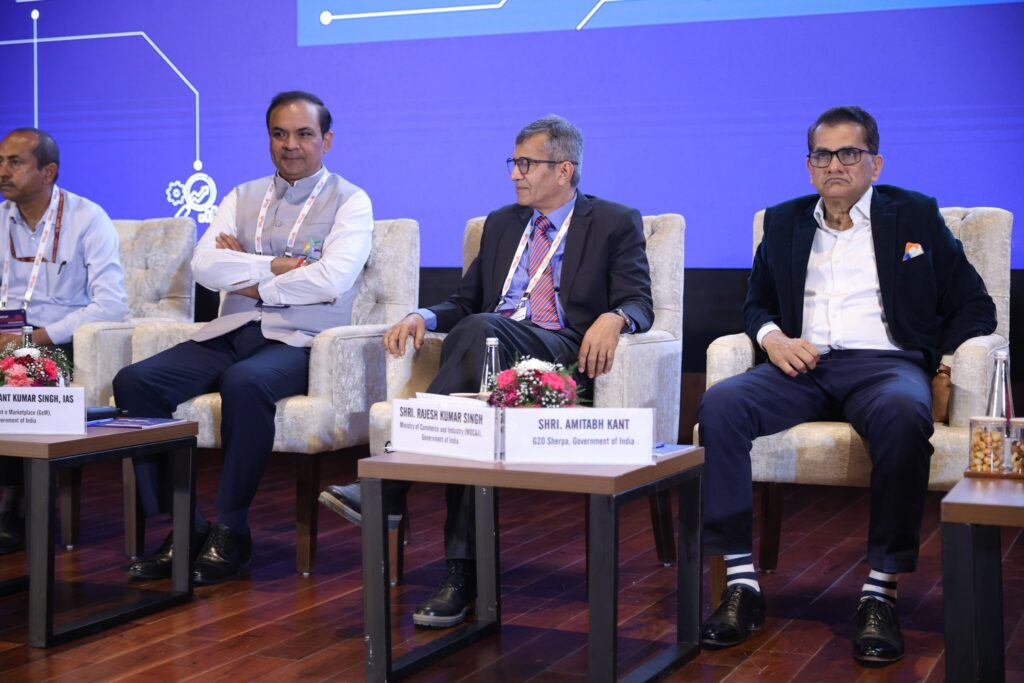The Startup Mahakumbh in New Delhi, taking place from March 18 to 20, serves as an excellent platform for the startup ecosystem to demonstrate that it goes beyond mere valuations and easy bets. Amidst the recent challenges faced by Byju’s and Paytm, this three-day event offers a valuable opportunity for the startup community to convey its potential as a positive and impactful force.
Byju’s and Paytm have been prominent figures in India’s startup landscape, which boasted over 100,000 recognized startups by 2023. At one point, Byju’s held the title of India’s most valuable startup with a valuation of $22 billion. India is also home to numerous unicorn startups, particularly in the fields of edtech, fintech, and health tech.
However, despite India’s vast diversity and unique challenges in the face of Climate Change, there remains a notable absence of successful startups in climate tech and agri-tech sectors. The emergence of more indigenous climate tech startups capable of driving innovation could enable India to develop tailored solutions for both national and region-specific challenges posed by extreme weather events, ultimately safeguarding lives and livelihoods. Additionally, an increase in climate tech startups could aid in reducing carbon emissions from industries like cement and steel.

The World Economic Forum’s Global Risks Report 2024 highlighted ‘extreme weather events’ as the second most severe global risk in the short term, emphasizing their significance as the primary long-term global risk.
The growth of agri-tech startups with the potential to achieve unicorn status could significantly enhance the climate resilience of India’s agriculture sector and contribute to increasing agricultural productivity.
In combination, climate tech and agri-tech startups can contribute to the Atmanirbhar Bharat agenda by supporting India in achieving self-reliance in two crucial technology sectors. Interestingly, the transfer of climate technologies is a significant concern raised by developing countries, including India, during the COP climate summits.
However, so far, investors have not shown the same level of interest in climate tech startups as they have in other segments of the Indian startup ecosystem. It remains unclear whether this is due to a lack of attractive investment opportunities in the climate tech domain or if investors are hesitant because they find it difficult to envision substantial returns from local climate tech startups.
While there are some startups in the Indian agri-tech sector, investor enthusiasm for this segment has not matched that of areas where quicker returns and lower risks are perceived.

On an international scale, the climate tech startup space has experienced a surge in investments, particularly in the United States. In October 2021, a CNBC report quoted Blackrock CEO Larry Fink stating that the climate tech startup space could witness the emergence of 1,000 unicorns.
If the Startup Mahakumbh witnesses the active participation of PE firms, VC funds, angel investors, and other entities displaying a keen interest in making substantial investments in startups operating in the fields of climate tech and agri-tech, it could result in one of the most favorable outcomes for this gathering. This could potentially encourage more entrepreneurs to venture into these promising domains, thereby not only reaping the aforementioned benefits but also enhancing the dynamism of the Indian startup ecosystem by fostering groundbreaking innovations. It is worth mentioning that the central theme for this event has been selected as ‘Bharat Innovates’.
From an investor’s standpoint, embarking on such a path could yield both financial and reputational gains. It could unlock new avenues for investors to generate profits while also bolstering their standing among stakeholders as individuals driven by a genuine desire to bring about positive societal change.
The Startup Mahakumbh holds the potential to play a pivotal role in shaping a new India. Therefore, it would be highly beneficial if these events are not merely reduced to superficial displays of success for modern businesses.

